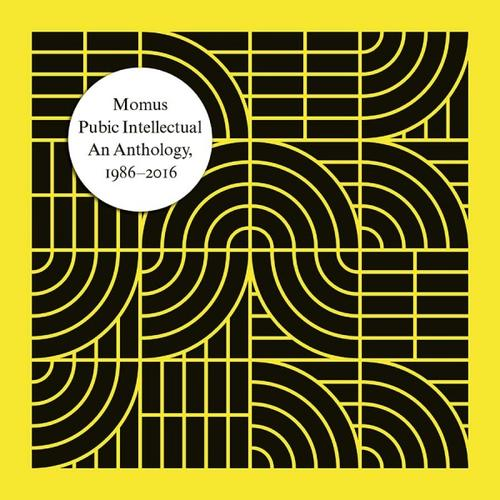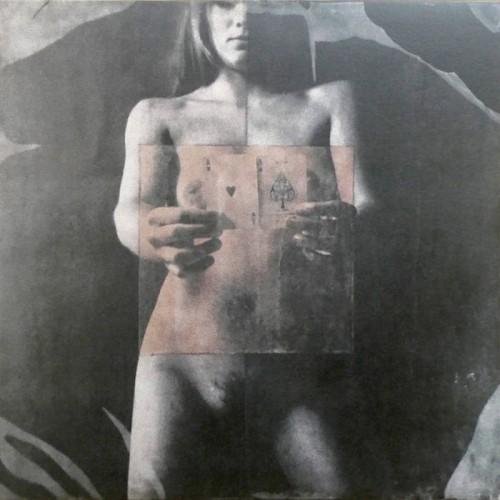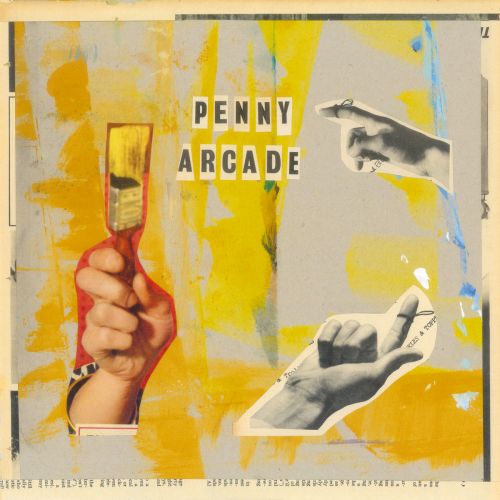Too Pure / Beggars Arkive
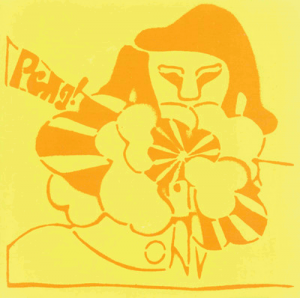 When Stereolab arrived on the scene in the early nineties, plying their trade on limited, lovingly packaged, vinyl releases, they also brought with them a new aesthetic for those times. Tim Gane, having spent time in indie luminaries McCarthy, brought part of that sound, but also imbued the new band with a love of 1970s motorik groove. Allied to the unique vocal stylings of Laetitia Sadier, this made for something really quite special.
When Stereolab arrived on the scene in the early nineties, plying their trade on limited, lovingly packaged, vinyl releases, they also brought with them a new aesthetic for those times. Tim Gane, having spent time in indie luminaries McCarthy, brought part of that sound, but also imbued the new band with a love of 1970s motorik groove. Allied to the unique vocal stylings of Laetitia Sadier, this made for something really quite special.
This album kind of consolidates what had come before on the various single releases, but enabled more people to appreciate their particular amalgam of styles, not just borrowing from krautrock but also from French pop music, and twisting in elements of modern psychedelia. Opener “Super Falling Star” bursts into life with a dramatic and mysterious flourish. A slow strum on guitar accompanies Laetitia’s beautifully cool, slightly detached vocals and dreamy background harmonies. It has a slow tempo that feels as though it is building towards something, but never quite peaks, allowing us to fully appreciate the divine harmonies. The motorik groove is introduced on “Orgiastic”, powered by organ, bass and drums. Laetitia’s voice is half-spoken and half-sung, incredibly low here and down in the mix, this time allowing the music to shine. The rhythm section does press her to move with them and this is the track where the NEU! comparisons make sense as there are no flourishes or superfluous fripperies, just a concentrated groove.
Considering how long Stereolab were producing music, we do have a tendency to take them for granted and it is interesting revisiting these earlier releases to see that they were still trying things out, seeing what best suited their style and group dynamic. “Peng! 33” is actually reminiscent of Dinosaur Jr, but far more upbeat and positive sounding. “Perversion” does take a slight backwards glance towards the jangly pop of the late eighties, but the harsh organ sound and dual vocal style are their personal ingredients, taken as a way of pushing the sound forward. There is a touch of Spacemen 3 in the groove of “Envirez-vous” but the addition of some of Charles Baudelaire‘s words delivered in a frantic manner give it a continental air that sits well with the squelchy synth and strange effects.The album is an interesting turning point, because for the few tracks that do hold a hint of other influences, there are others that are settling on a blueprint for how we might recognise Stereolab of the future. The tape loop rhythm and gently swooning vocals of “K-stars” which sit over a church organ sound is strangely beguiling, Laetitia’s French accent more pronounced than appears as the band progresses. The noisy drone outro of this track and the incredibly up-tempo, hypnotic vibe of “Stomach Worm” look towards the more experimental sound that they would undertake on Transient Random-noise Bursts With Announcements. “Stomach worm” is messy and noisy and sounds as though all the band are pushing to be heard through the din. You don’t want it to stop and that is always the feeling of a classic Stereolab track, just as happens on “The Seeming And The Meaning”, which is probably classic Stereolab with hopped-up repetitive guitar, driving rhythm, upbeat vocals with ba-ba-ba harmonies, the whole band locked in unison propelling the song to its obvious conclusion.
In fact, I can’t think of a modern band that have done so much for placing dreamy, sixties-influenced female harmonies in a modern alt-pop context. The final number, “Surrealchemist”, is the antithesis of the preceding track. A twangy surfy guitar sits over a chugging rhythm as Laetitia bemoans a “bourgeois Christian civilisation”, but in the sweetest of tones. The heavy material in such a cooing delivery grates with the dirty organ. A repetitive groove finally kicks in and sees the album out in good stead.This album is well worth revisiting. It has charm, charisma, is full of acerbic lyrics and revels in the sound of a band at the beginning of a journey that will take them into the hearts of many.
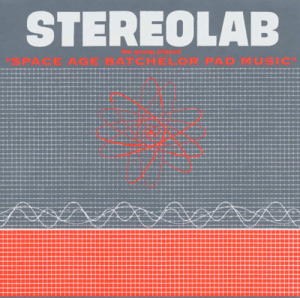 Released some months after Peng!, The Groop Played “Space Age Bachelor Pad Music” was a mini-album that was very much a release of two sides, showing a growing influence on the band on the first and perfecting their hypnotic take on repetition on the second. Still with Too Pure but not for much longer, the band had added Mary Hansen here for further vocal dreaminess and also received assistance from long-time friend Sean O’Hagan of The High Llamas.
Released some months after Peng!, The Groop Played “Space Age Bachelor Pad Music” was a mini-album that was very much a release of two sides, showing a growing influence on the band on the first and perfecting their hypnotic take on repetition on the second. Still with Too Pure but not for much longer, the band had added Mary Hansen here for further vocal dreaminess and also received assistance from long-time friend Sean O’Hagan of The High Llamas.
There is some lovely bass playing on this side and Mary’s vocals do add a feather-light touch to the tracks, but things turn odd on “Space Age Bachelor Pad Music (Foamy)” when you feel there must be a song in there somewhere, but it is like looking at something glinting on the ocean floor, Everything is wishy-washy and it sounds as though the speakers have been blown. An intriguing and worthwhile experiment that leads into the lullaby of final track “Ronco Symphony”, a gentle thing with woodblock rhythm and Laetitia delivering probably her most romantic vocal yet, particularly the line, “Would you just smile back at me”.
The second side is where the band attempt to perfect their familiar sound and they really hit a groove. The insistent repetition and mantra-like vocals of “We’re Not Adult Orientated” are delicious, with the odd key change just to keep it interesting. The soaring harmonies and unswerving drums just stop you breathing and allow the vibe to sweep you away. The momentous bass is sublime and just about keeps the whole thing on the rails. Velvet Underground-style guitar and spiky distortion are pitted against the breeziest of harmonies on “UHF-MFP” and once again you are reminded of how much this band did for wordless vocal accompaniment. It is amazing how much emotion can be portrayed without words and once more you really notice the underpinning of the bass, which leads to the repetition ad infinitum of the final track “We’re Not Adult Orientated (Neu Wave Live)”, which takes the earlier incarnation and just makes it more precise, faster and utterly irresistible. You could happily lose your mind to the words flowing through your consciousness as the bass struggles to keep up with the insane tempo set by the guitar and drums.It is a breathtaking end to what is actually a vital part of their catalogue. Both this and Peng! are essential stepping stones toTransient Random-noise Bursts With Announcements — which for me is their masterpiece — but are so worth buying. It is lovely to see them on vinyl again, where they belong. So if you don’t know these two LPs, you must put that right now.
-Mr Olivetti-
